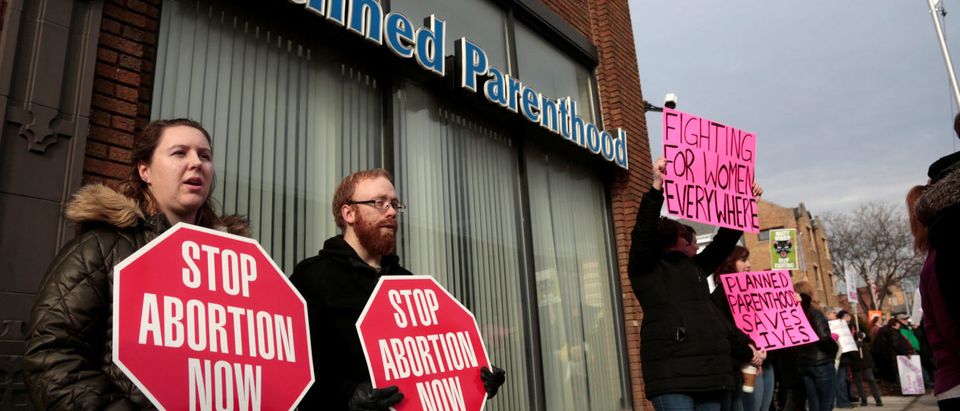The U.S. Supreme Court Monday turned down a First Amendment challenge to a noise provision of Maine’s civil rights law used to police abortion clinic protests.
Though the denial is a temporary victory for the state, the case is likely to return to the Court at a future juncture.
The Maine Civil Rights Act makes it unlawful to create noise audible within a health care facility meant to interfere with the safe and effective delivery of medical services. Pro-life groups say the provision is a poorly-disguised attempt to suppress the speech of anti-abortion protesters, and asked the high court to strike it down.
Also WATCH: Bongino calls Comey an embarrassment to the FBI
A federal judge agreed the law was likely unconstitutional and issued an injunction against its enforcement, but the 1st U.S. Circuit Court of Appeals reversed that decision.
Pastor Andrew March of the Cell 53 church in Lewiston, Maine, brought a constitutional challenge to the law with the assistance of the Thomas More Law Center, a public interest practice that litigates around religious liberty issues. March frequently demonstrates outside a Planned Parenthood facility in downtown Portland. His suit is a counterclaim to a state action brought against a fellow pastor, according to local media.
March’s petition claims Planned Parenthood employees complained about his volume as a matter of course, regardless of whether he was actually audible within the building. It also notes the clinic is located on a busy urban thoroughfare which regularly hosts parades and protests of various kinds that generate more noise than his street preaching.
“The noise provision achieves [a] discriminatory result by requiring enforcement to be predicated on the intent of the speaker,” his petition to the high court reads.
In response, the state argued the provision does not create content-based restrictions on speech itself. Rather it operates against speakers who intentionally use noise to disrupt the administration of healthcare.
“It applies to noise made with the intent to interfere with the delivery of medical services, regardless of whether the noise even conveys any message,” Maine’s petition reads. “Distinctions based on the intent of the speaker do not make a restriction content-based, and no case from this or any other court is to the contrary.”
The Court may have turned down the petition since the suit is a facial challenge to the law, and lacks a well-developed factual record for their review. Additionally, at this stage the parties are battling over an injunction, which would bar enforcement of the law pending further proceedings. The high court generally reserves its review for disputes where final judgement has been issued. As such, the case may return to the tribunal after lower courts issue a definitive ruling on the noise provision.
The justices are currently considering a challenge to a California law requiring pro-life crisis pregnancy centers to disseminate information about state-funded abortions. A decision in that case, NIFLA v. Becerra, is expected by June.
Send tips to kevin@dailycallernewsfoundation.org.


